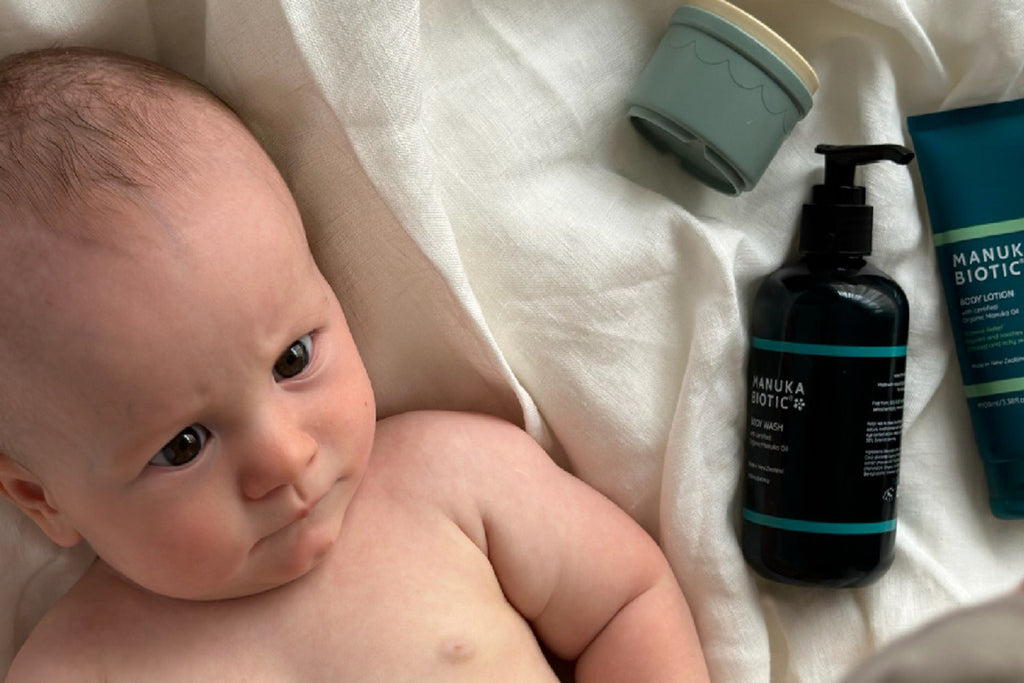Discovering dry, flaky skin on your baby can be concerning. Identifying the cause is crucial, especially when conditions like cradle cap and eczema share similar symptoms. In this guide, we'll explore the differences between cradle cap vs. eczema, their symptoms, and effective treatment plans for each. Ensure your baby's comfort by understanding these common skin concerns.
Differences Between Cradle Cap Vs. Eczema
Cradle Cap
Cradle cap, or infantile seborrheic dermatitis, is a common condition affecting around 10% of children in their first three months. It usually manifests as dry skin on the scalp, developing into crusty, oily bumps that may resemble white or yellow scales. Although it can last for several months, cradle cap is generally not painful or itchy. Find more more tips and trick on cradle cap here.
Eczema
Eczema, or atopic dermatitis, is more prevalent in children and teens, affecting around 30% of the U.S. population. About 60% of cases develop in the first year of life. Eczema results in dry, bumpy, red (or yellow), and itchy patches on the skin. It can be triggered by various factors, such as weather, certain products, food allergies, and stress. To read more on eczema and baby eczema you can click here.
Symptoms Of Cradle Cap Vs. Eczema
Cradle Cap Symptoms
- Crusty, oily bumps on the scalp
- Thick crusts
- Skin flakes
- White, yellow, or brown scales
- May extend to the scalp, face, ears, or groin area
Eczema Symptoms
- Red, reddish-purple, brownish, or gray skin irritation
- Itchy, dry skin
- Flaky skin
- Swelling
- Rough skin
- Red patches on the face, hands, and skin folds
Treatment For Cradle Cap And Eczema
If unsure about your baby's condition, a pediatrician can help distinguish between cradle cap and eczema through a physical exam or skin biopsy.
Cradle Cap Treatment
- Soothing relief with natural Cradle Cap solutions available here
- Limit bathing to once a day, avoiding prolonged periods. Use the Calming Body Wash for a toxin free antibacterial wash.
- Use our Eczema Relief Body Lotion and our gentle shampoo for sensitive scalps.
- Brush or massage the scalp to loosen flakes.
Eczema Treatment
- Consult a doctor for appropriate treatments based on severity.
- Consider natural remedies like natural fabric clothing, stress management, and avoiding allergens.
- Moisturise with eczema-friendly products, such as Eczema Relief Body Lotion.
Unveiling the Many Benefits of Mānuka Oil - Promoting Healthy Skin
Research indicates that Mānuka oil, with its antibacterial, anti-fungal, and anti-inflammatory prowess, actively promotes healthy skin by combating bacterial growth, a common trigger for various skin conditions. Embrace the power of Mānuka Biotic's Calming Body Wash, Eczema Relief Body Lotion, and Shampoo for Sensitive Scalps, all made with the natural benefits of Mānuka oil, to ensure your baby's skin stays happy and healthy.














